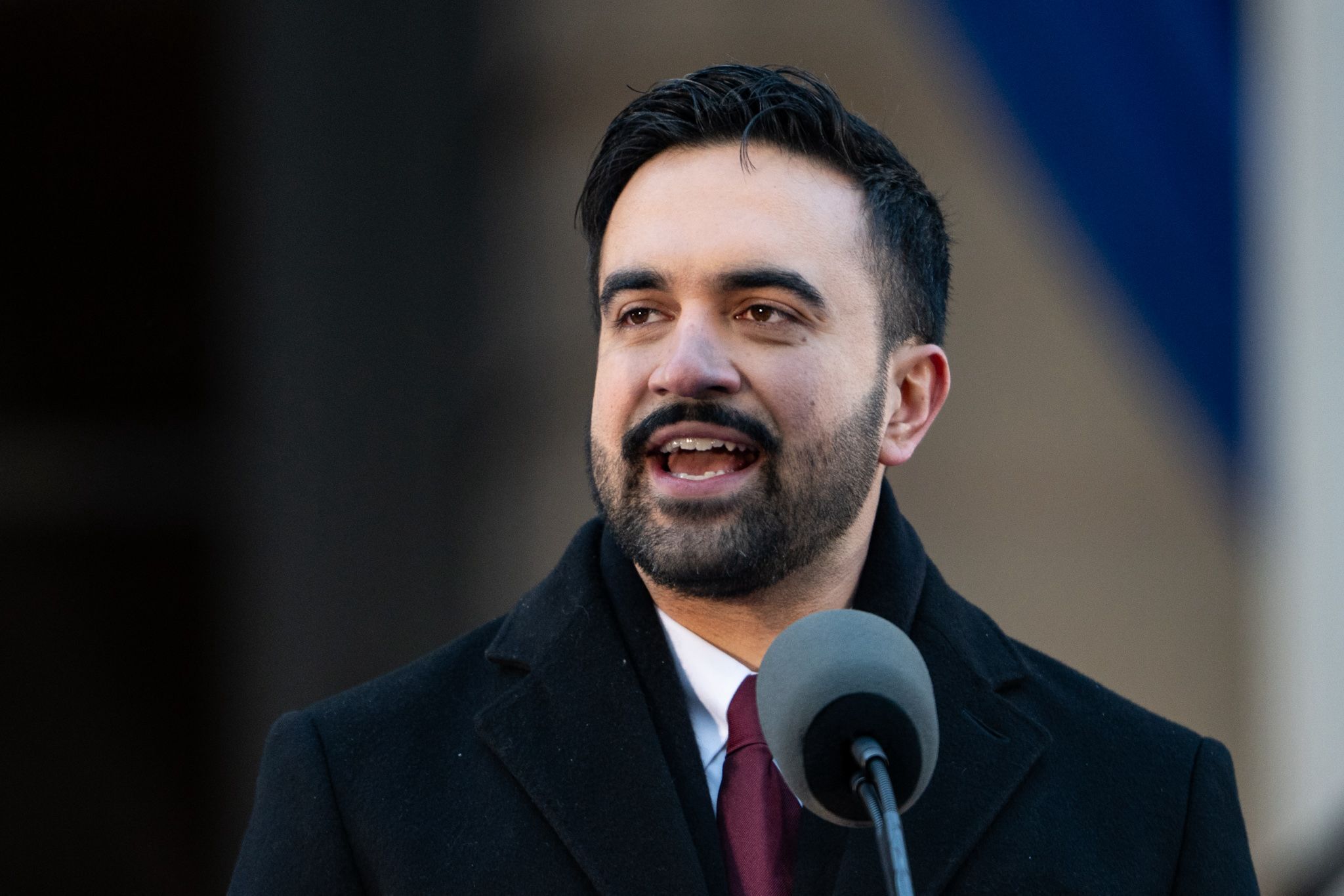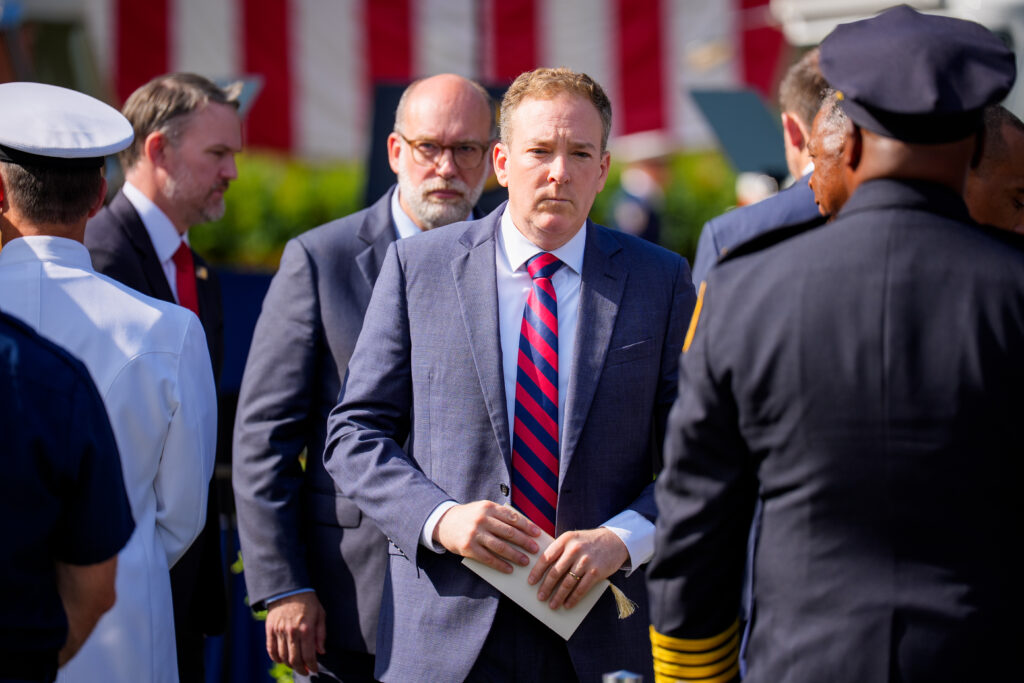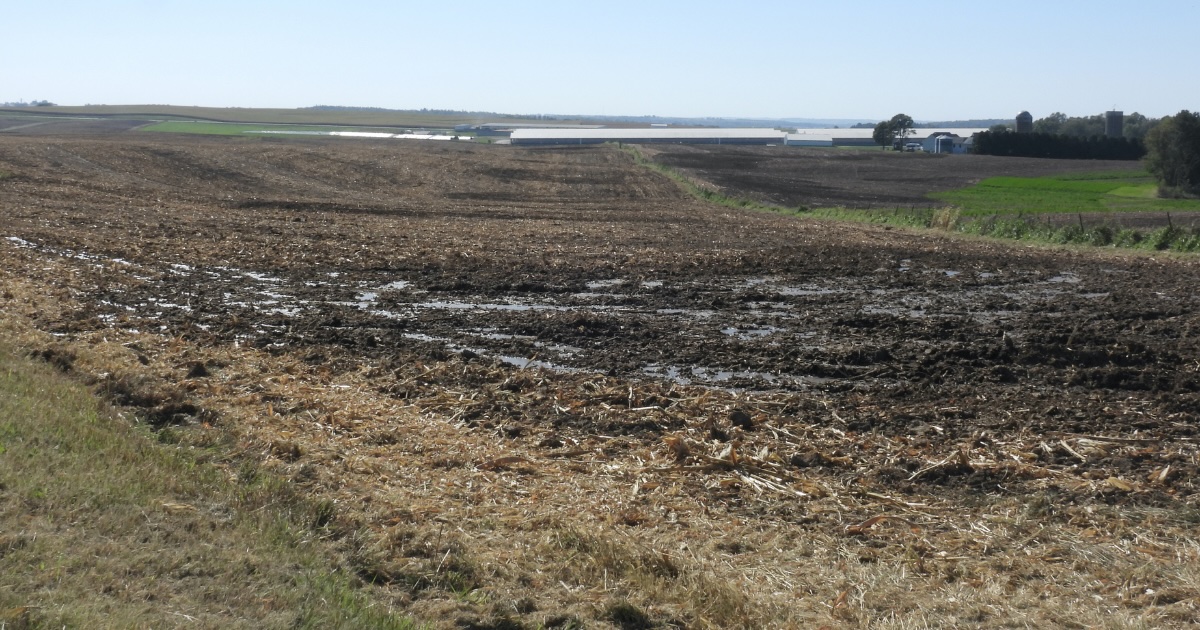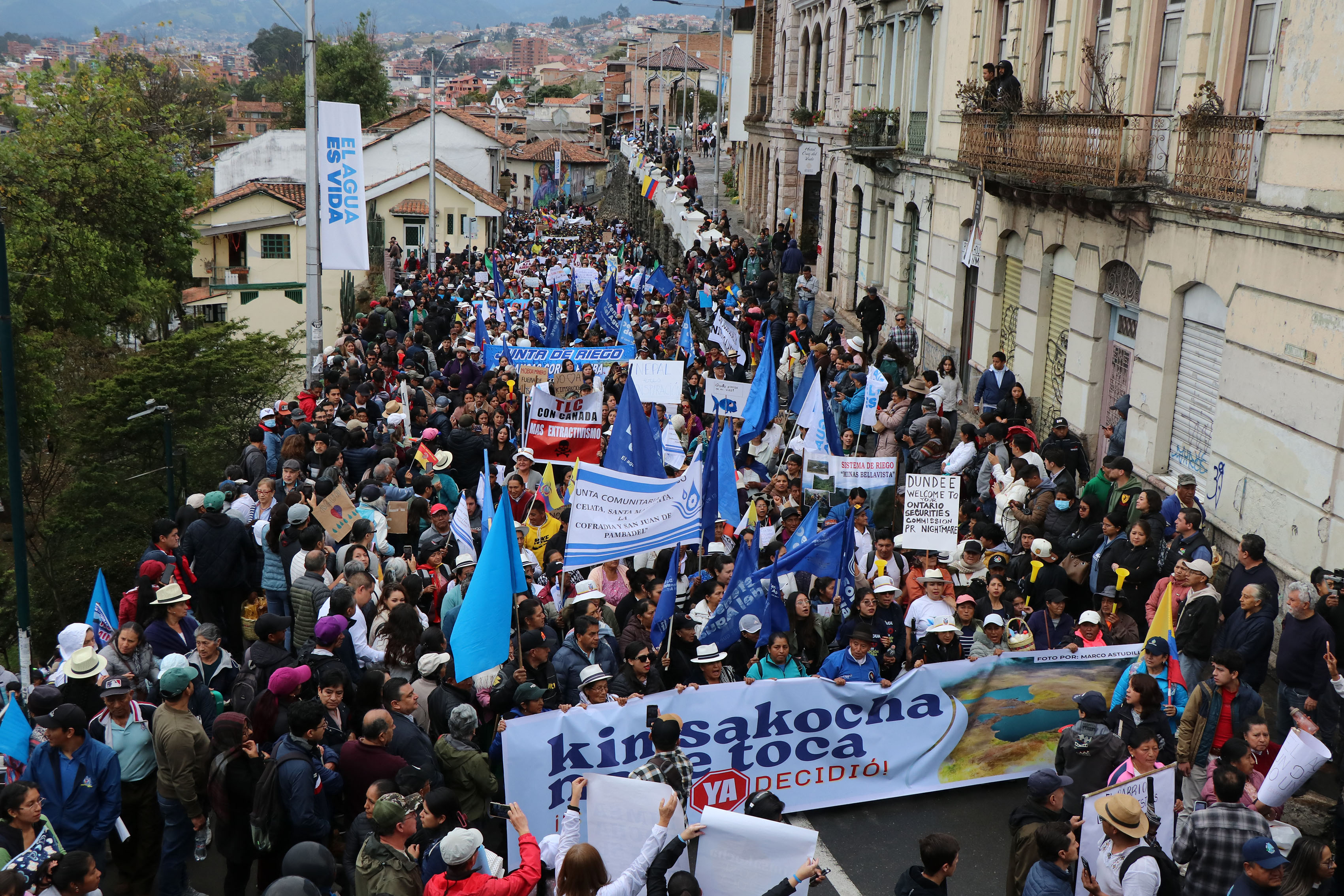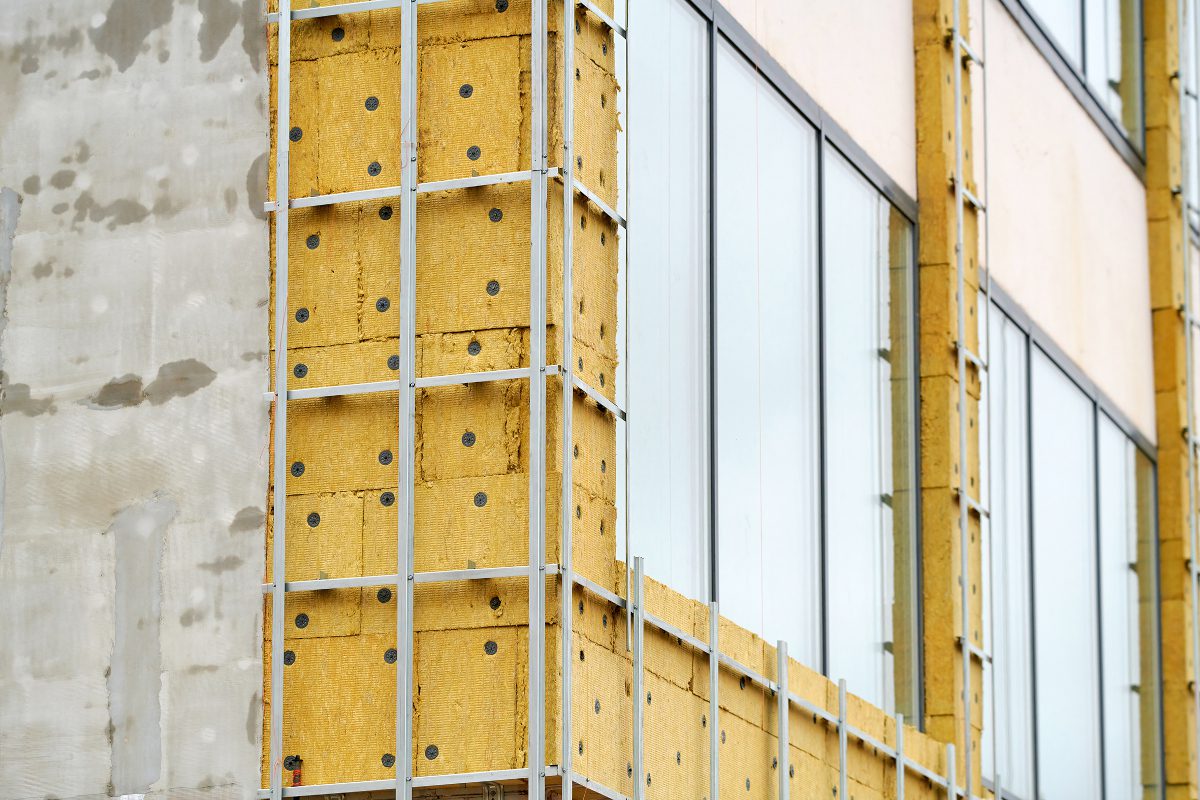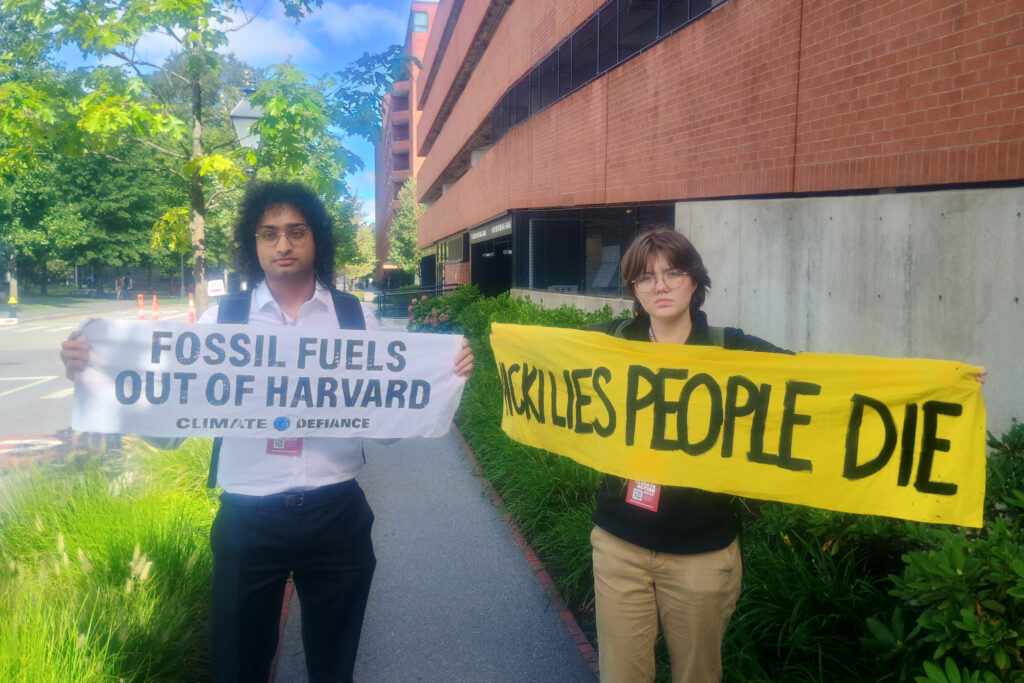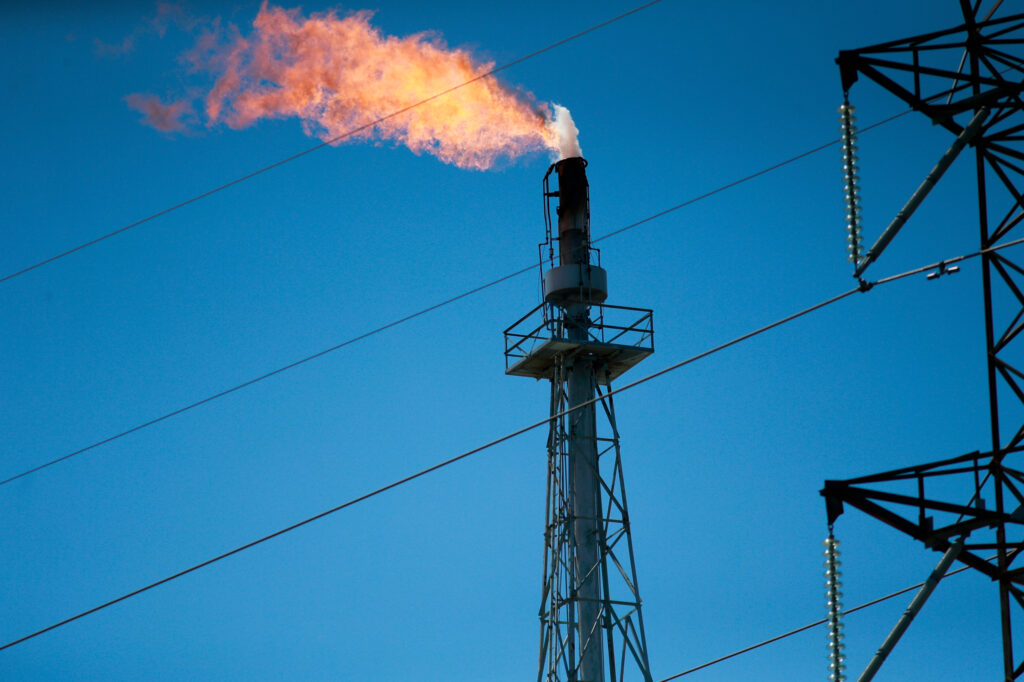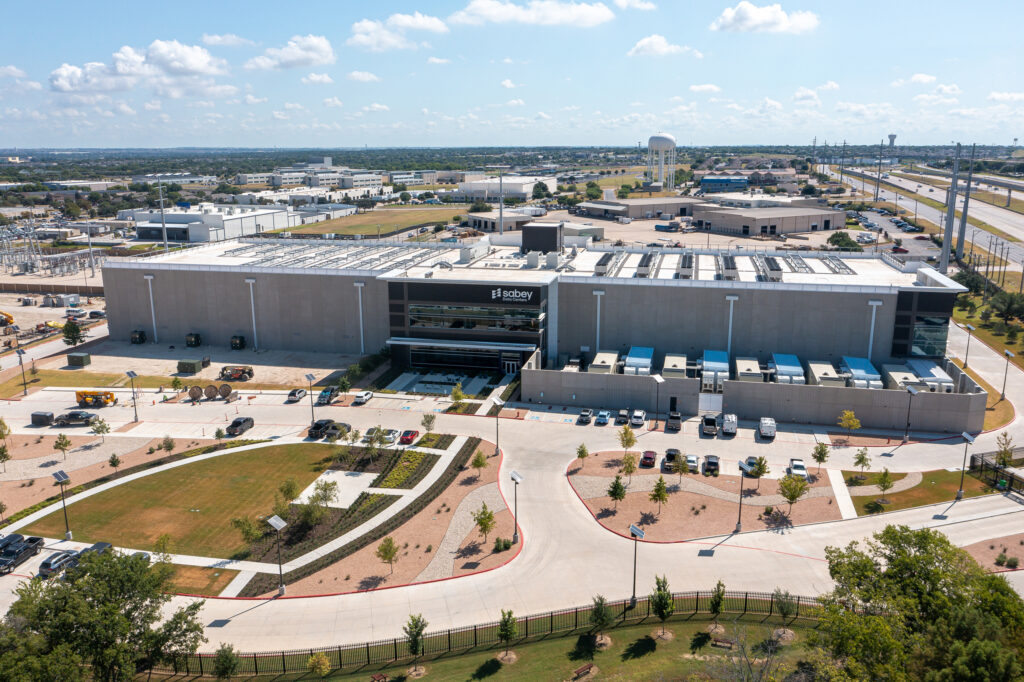RICHMOND, Va.—In the middle of Monroe Park, the central gathering spot for students at Virginia Commonwealth University, Carolyn Hindle, a third-year student graduating early and studying political science, called out the school’s president on Earth Day, sunny and bustling.
“Hey, Michael Rao, climate justice now,” Hindle said in front of about 20 students chanting it back. “Hey, Michael Rao, climate justice now.”
Hindle was one of several student leaders across Virginia who organized with classmates as part of the reactivation of the Virginia Student Environmental Coalition to mark Earth Day on Tuesday.
We’re hiring!
Please take a look at the new openings in our newsroom.
See jobs
Wanting school officials to “Take A Stand,” the coalition includes students from the University of Virginia, Virginia Tech, George Mason University and the University of Richmond, with members of the National Association for the Advancement of Colored People and Students for Justice in Palestine also participating.
“It’s very important for the university to be showing leadership,” said Zoe Cultrara, a senior at the University of Richmond studying environmental sciences.
As the administration of President Donald Trump and U.S. Environmental Protection Agency Administrator Lee Zeldin roll back clean air and water protections and excise references to climate change from government websites, the students demanded more accountability and transparency around their universities’ climate plans. Many of the schools, including VCU, have sought to be carbon neutral, but it is hard to track progress and actionable steps taken, Hindle said.
“The climate crisis is already impacting people’s lives,” Hindle said.
In response to questions about how the university is planning to reduce emissions or have 10 percent of electricity sources from rooftop solar and another 10 percent from offsite solar, as the students have demanded, VCU spokesperson Brian McNeill was supportive.
“VCU sincerely appreciates our students’ continued engagement with the pressing issues facing our university, our community and the planet,” McNeill said. “VCU continues to engage with students and other members of the VCU community and encourage participation in the ONE VCU Sustainability Plan.”

The students at other schools made similar demands. Cameron Burke, a fourth-year student at the University of Virginia studying biology and global studies, said she was seeking commitments that go further than converting from coal to natural gas. “Students still care,” Burke said, even amid the other pressures facing U.S. universities.
The University of Virginia’s major capital plan is updated annually at the June Board of Visitors’ meeting, with the agenda this year including a discussion of a project to convert the school’s main heating plant from coal to a greater percentage of natural gas, with oil as a backup, said Bethanie Glover, UVa. spokesperson.
“We are making good progress to achieve these goals, as part of our larger mission to be a just and sustainable community,” Glover said, referencing the school’s 2030 plan to “set ambitious sustainability goals and develop realistic plans to meet them.”
Burke was hardly satisfied. “They’re definitely not going to reach their 2030 goal, unless they purchase offsets” to be carbon neutral, she said. Instead, the school needs to invest in long-term investments like carbon-free heating sources in order to be fossil free by 2050, he added.
UVa.’s modest plan contrasts with William and Mary’s program for installing less-emitting geothermal units that use heating and cooling sources from under the Earth’s surface.
Cultrara, at the University of Richmond, acknowledged “it’s a difficult change,” but her fellow students want to be involved in future climate planning processes.


At George Mason University and Virginia Tech, students rallied for more transparency.
George Mason, in Fairfax outside Washington, D.C., announced a plan as far back as 2007 to be carbon neutral by 2050, said Aminah Oladapo, a third-year information technology major. In 2022, the school made commitments in line with the state’s 2020 Virginia Clean Economy Act to decarbonize the state’s grid by mid-century, she added, but since then, the school’s plan is “incomplete” and “not sharable.” Students, Oladapo said, have been “left in the dark.”
Similarly, Virginia Tech, in Blacksburg, adopted a plan in 2020 to reduce emissions. But now the school is undergoing a five-year revision process with little information easily accessible, said Catherine Shewchuk, a junior at Virginia Tech studying environmental policy and planning.
Her bottom line: ”No accountability,” she said.
“There’s definitely a sense of urgency,” Shewchuk added, referencing the hurricanes and wildfire damage amplified by climate change that are happening across the country.
The student movements, the organizers said, are part of a broader effort to push back against Dominion’s plans to build a natural gas peaker plant in Chesterfield County, an area identified under the previous presidential administration as an environmental justice community.
Dominion Energy, which is run by Bob Blue, who sits on UVa.’s Board of Visitors, has maintained the carbon emitting peaker plant is needed to maintain grid reliability amid claims that renewable energy can’t meet demand. The utility did not respond to a request for comment.
Students at UVa. also expressed concerns over recent actions by the Trump administration to end Diversity, Equity and Inclusion initiatives, restrict health access for transgender people and deport students who expressed support for Palestinians after Hamas’ Oct. 7, 2023, attack on Israel led to Israel’s invasion of the Gaza strip.
“Right now, it feels like so much more is under attack,” Burke said before she and other students pivoted to a community forum to discuss those topics.
“Promoting free expression and free inquiry on grounds is core to our mission and integral to who we are,” said Glover, the UVA spokesperson.
About This Story
Perhaps you noticed: This story, like all the news we publish, is free to read. That’s because Inside Climate News is a 501c3 nonprofit organization. We do not charge a subscription fee, lock our news behind a paywall, or clutter our website with ads. We make our news on climate and the environment freely available to you and anyone who wants it.
That’s not all. We also share our news for free with scores of other media organizations around the country. Many of them can’t afford to do environmental journalism of their own. We’ve built bureaus from coast to coast to report local stories, collaborate with local newsrooms and co-publish articles so that this vital work is shared as widely as possible.
Two of us launched ICN in 2007. Six years later we earned a Pulitzer Prize for National Reporting, and now we run the oldest and largest dedicated climate newsroom in the nation. We tell the story in all its complexity. We hold polluters accountable. We expose environmental injustice. We debunk misinformation. We scrutinize solutions and inspire action.
Donations from readers like you fund every aspect of what we do. If you don’t already, will you support our ongoing work, our reporting on the biggest crisis facing our planet, and help us reach even more readers in more places?
Please take a moment to make a tax-deductible donation. Every one of them makes a difference.
Thank you,






